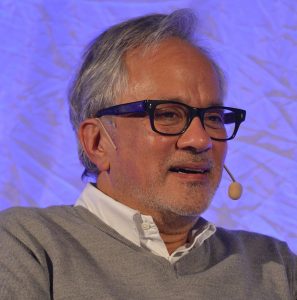
Photo Credit: Bengt Oberger, CC BY-SA 4.0
There’s been a lot of controversy over the so-called “POPS” – privately-owned public spaces – that are increasingly part of the urban landscape. Zuccotti Park, the location of Occupy Wall Street, is one such POPS. It’s not technically a public park, but instead controlled by Brookfield Properties.
This kind of semi-privatization, and the privatization of public space generally, has raised a lot of alarm bells in certain circles. But there’s another type of privatization of public space that has received much less scrutiny. That’s the proliferation of public art.
Public art de facto privatizes anyplace it is installed because the artist often retains a copyright in the work, and thus can veto any picture or video that includes his artwork.
This does in fact happen. Just last week there were reports that Anish Kapoor, the creator of the Cloud Gate (“bean”) sculpture in Chicago’s Millennium Park, is suing the NRA for including that sculpture in a video.
The NRA is hardly a sympathetic defendant here, but that sculpture is in a public park. The idea that an individual artist can simply decide who can and can’t film a public space in the city is privatization far greater than any POPS.
It’s pretty well established that public entities have to provide open access. Parks can’t refuse to host events based on viewpoint. Transit agencies can’t refuse ads for politically disfavored groups.
Similarly, it’s not clear why it shouldn’t be a principle of law that there can’t be viewpoint discrimination in who can and can’t take pictures or film in a public park. It might also suggest this should apply as a matter of zoning to private land along public rights of way. (Signs can already be regulated in a similar manner).
Any city installing public art should ensure that the agreement with the artist provides for unconditional royalty free pictures and videos, or the art shouldn’t be installed. Courts should also be scrutinizing whether cities have been improperly transferring property rights in their public land to private parties like artists.
from Aaron M. Renn
http://www.urbanophile.com/2018/06/25/public-art-and-the-privatization-and-public-space/
No comments:
Post a Comment